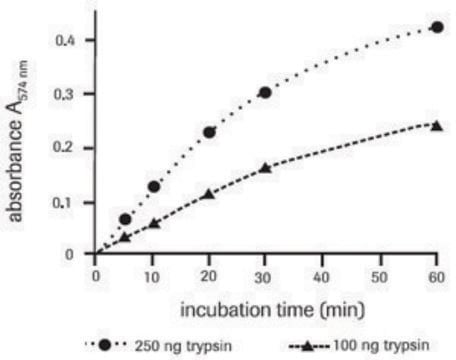ZR-75-1
87012601, human breast, Epithelial
Iniciar sesiónpara Ver la Fijación de precios por contrato y de la organización
About This Item
UNSPSC Code:
41106514
Productos recomendados
product name
ZR-75-1, 87012601
biological source
human breast
growth mode
Adherent
karyotype
2n = 46, modal no. 72
morphology
Epithelial
products
Not specified
receptors
Reported to express the oestrogen and progesterone receptors
technique(s)
cell culture | mammalian: suitable
relevant disease(s)
cancer
shipped in
dry ice
storage temp.
−196°C
Cell Line Origin
Human Caucasian breast carcinoma
Cell Line Description
Derived from a malignant ascitic effusion in a 63 year old female Caucasian with infiltrating ductal carcinoma. The cells are reported to express both the wildtype and variant oestrogen receptors, progesterone receptor and other steroid hormones.
Application
Hormone and tumourigenicity studies
ZR-75-1 has been used to determine the effects of cucurbitacin E (CuE) extracted from Ecballium elaterium A.Rich., Fam. Cucurbitaceae.
DNA Profile
STR-PCR Data:
Amelogenin: X
CSF1PO: 10,11
D13S317: 9
D16S539: 11
D5S818: 13
D7S820: 10,11
THO1: 7,9.3
TPOX: 8
vWA: 16,18
Amelogenin: X
CSF1PO: 10,11
D13S317: 9
D16S539: 11
D5S818: 13
D7S820: 10,11
THO1: 7,9.3
TPOX: 8
vWA: 16,18
Culture Medium
RPMI 1640 + 2mM Glutamine + 1mM Sodium Pyruvate (NaP) + 10% Foetal Bovine Serum (FBS).
Subculture Routine
Split sub-confluent cultures (70-80%) 1:3 i.e. seeding at 3-5x10,000 cells/cm2 using 0.25% trypsin or trypsin/EDTA; 5% CO2; 37°C. Cells grow very slowly, do not form a confluent monolayer and attach only lightly to the substrate. After subculture, it can take up to 7 days before cells re-attach. Detachment of cells can occur in PBS and trypsinisation can produce clumps of cells. To avoid clumping do not agitate the cells by hitting or shaking the flask while waiting for the cells to detach. When subculturing, ensure the trypsin is completely removed by centrifuging the cells and resuspending them in fresh medium.
Other Notes
Additional freight & handling charges may be applicable for Asia-Pacific shipments. Please check with your local Customer Service representative for more information.
Certificados de análisis (COA)
Busque Certificados de análisis (COA) introduciendo el número de lote del producto. Los números de lote se encuentran en la etiqueta del producto después de las palabras «Lot» o «Batch»
¿Ya tiene este producto?
Encuentre la documentación para los productos que ha comprado recientemente en la Biblioteca de documentos.
Nuestro equipo de científicos tiene experiencia en todas las áreas de investigación: Ciencias de la vida, Ciencia de los materiales, Síntesis química, Cromatografía, Analítica y muchas otras.
Póngase en contacto con el Servicio técnico




